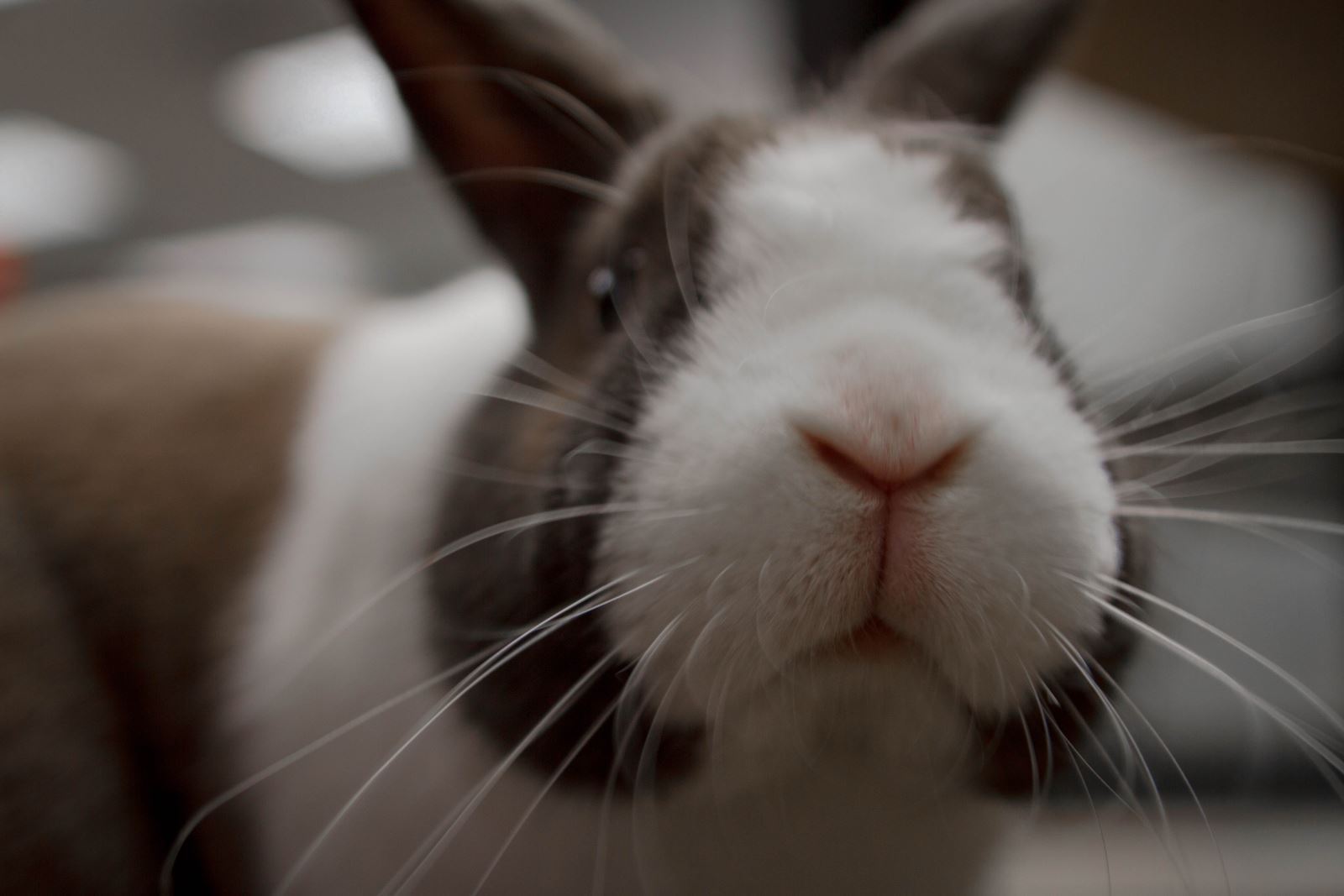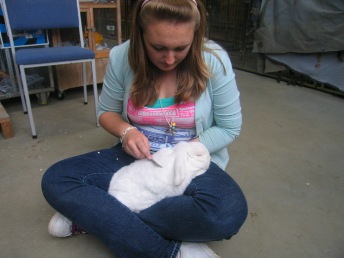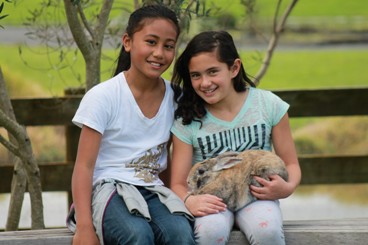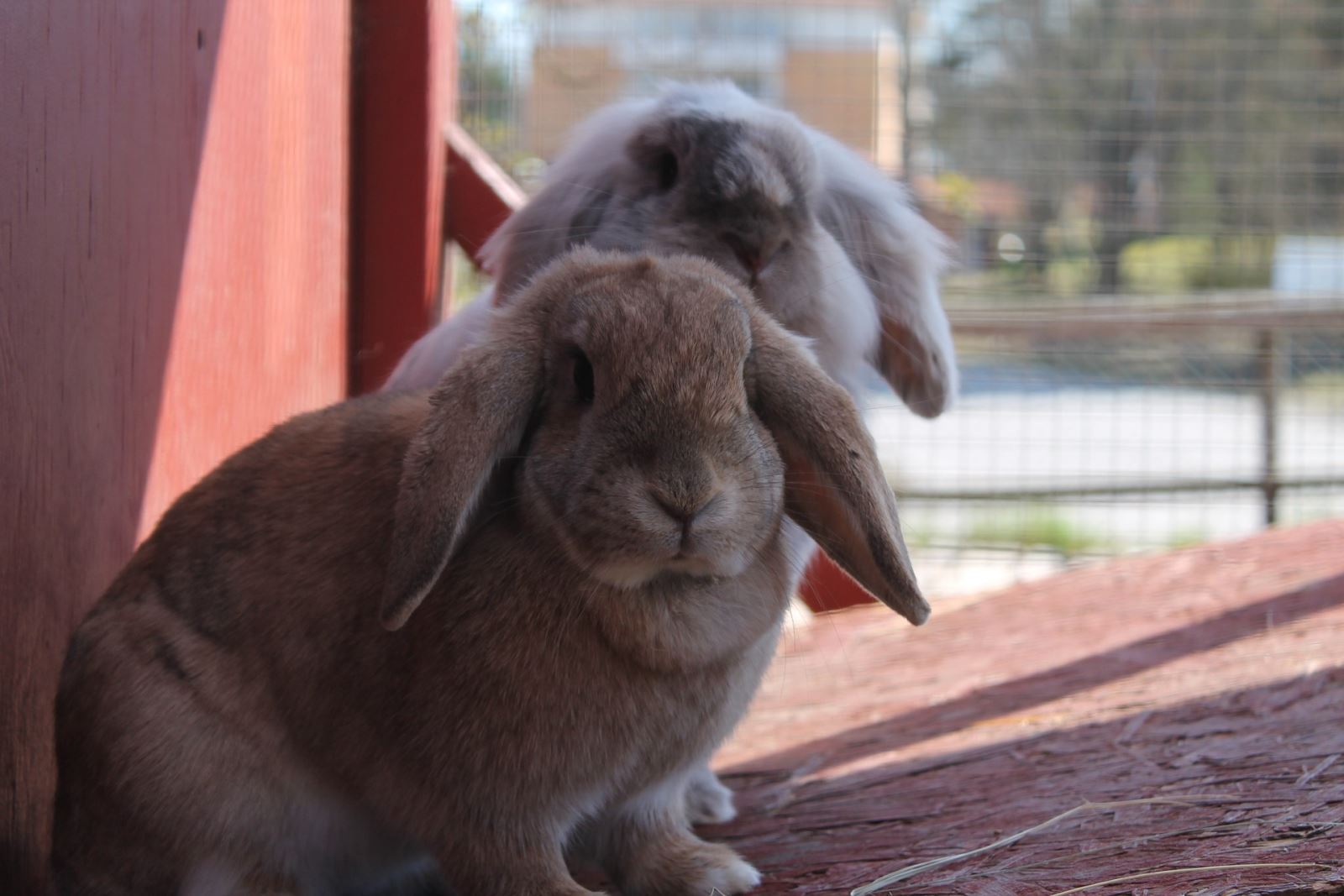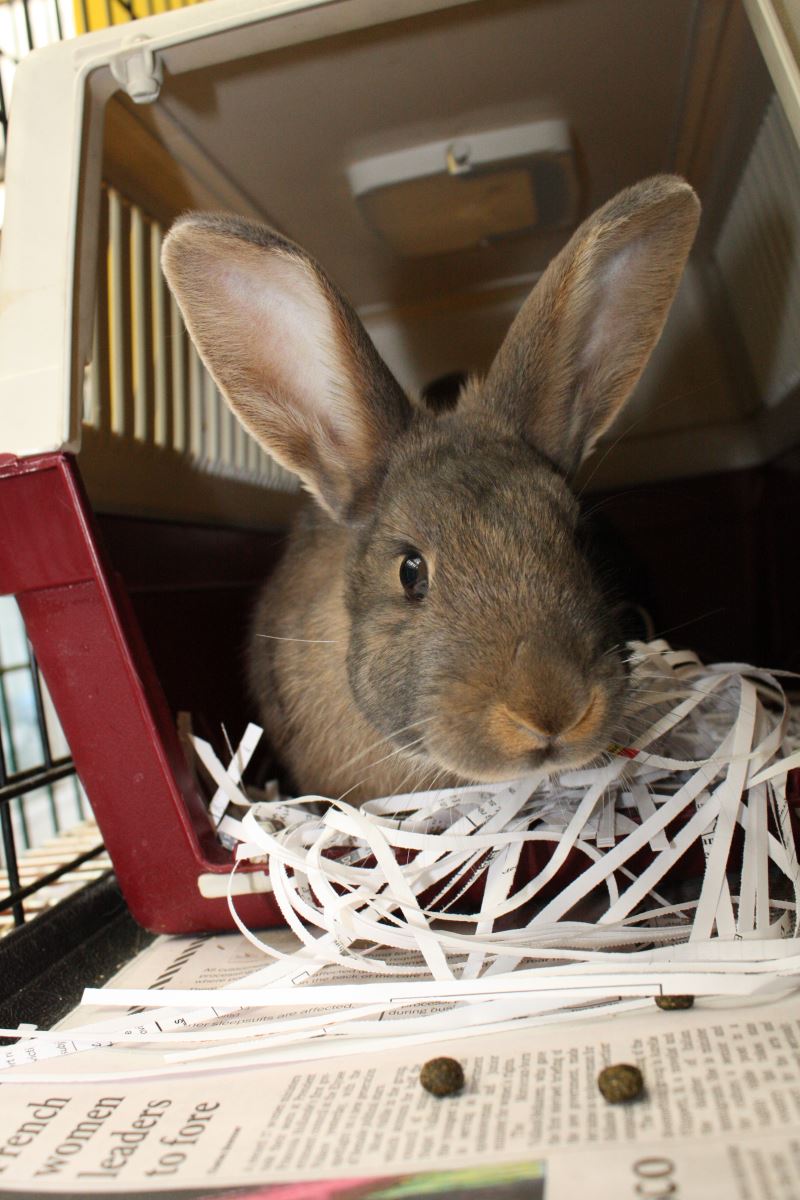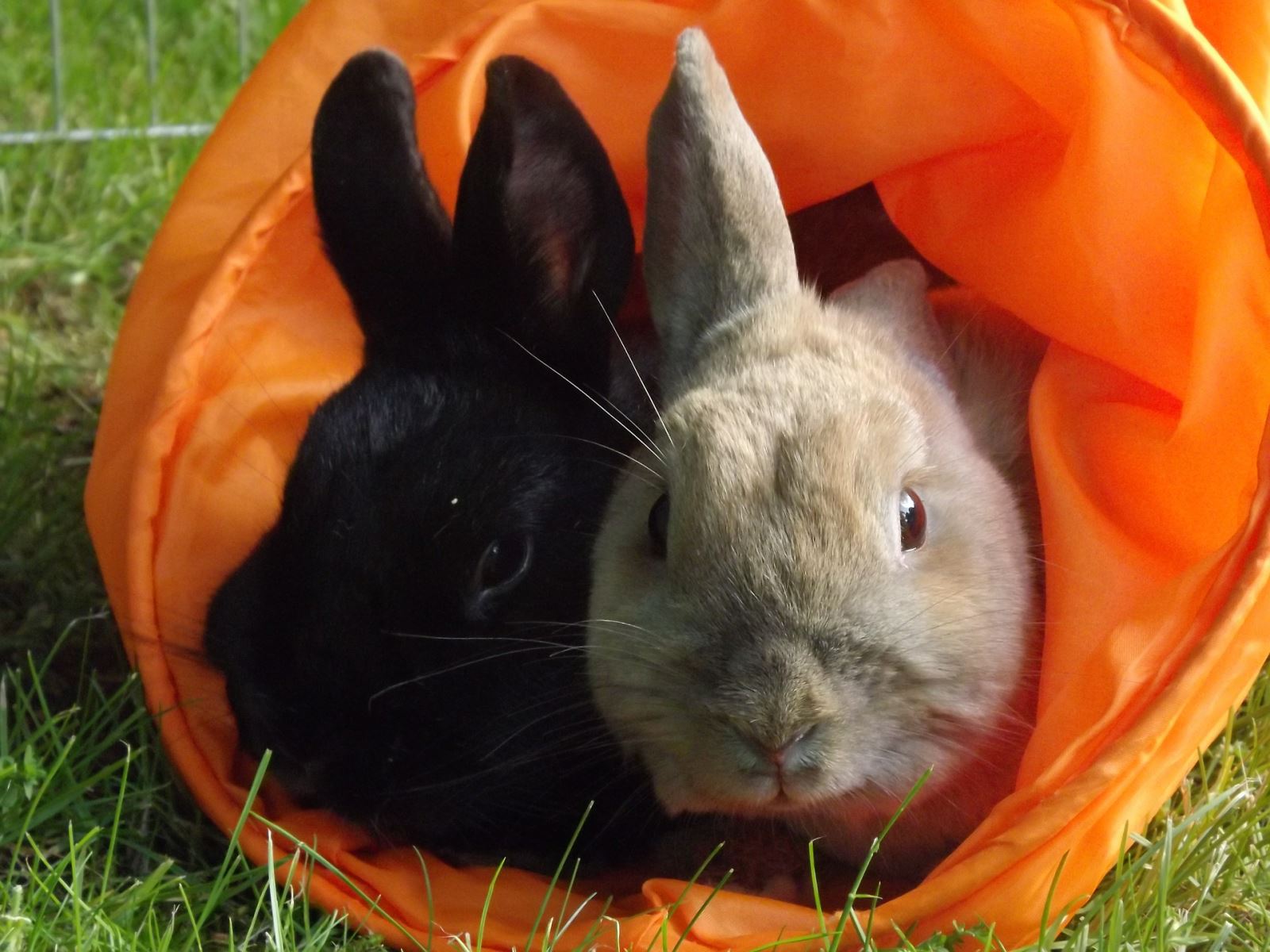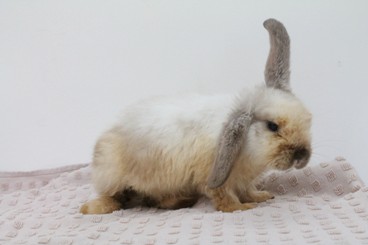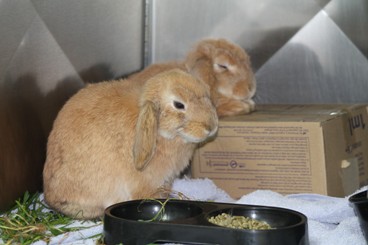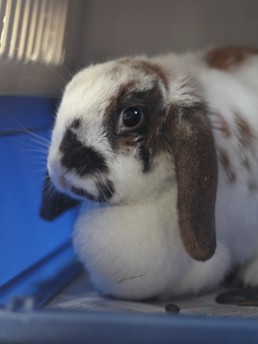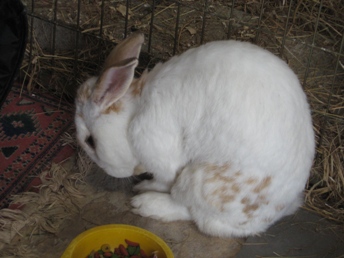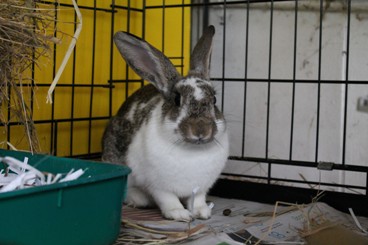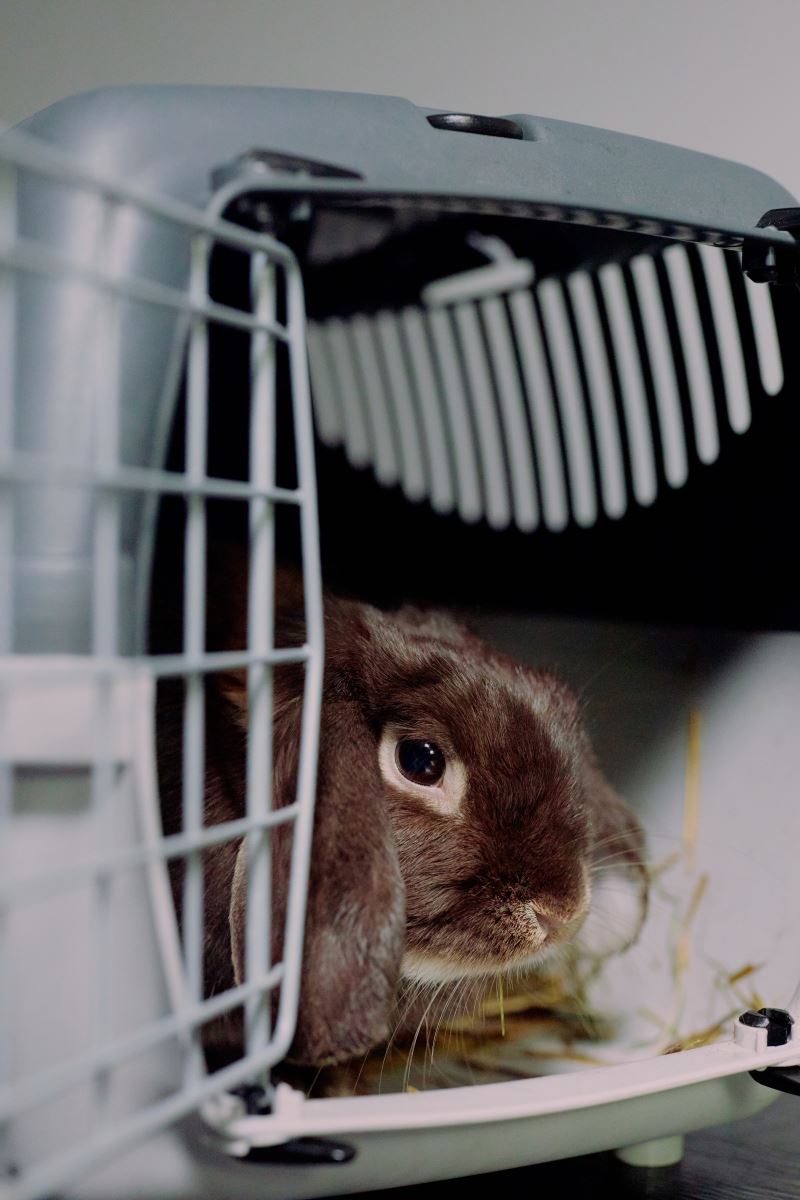 Rabbits do not enjoy being picked up and cuddled. In fact, it can be really scary for them. As such, rabbits should only be picked up if it is in their best interest.
Rabbits do not enjoy being picked up and cuddled. In fact, it can be really scary for them. As such, rabbits should only be picked up if it is in their best interest.
When your rabbits need to go to the vet, to avoid lifting them, you can use reward based training to train your rabbits to go into their carrier themselves! By placing your rabbits’ favourite treats inside their carrier and leaving the door open, you can let them hop in in their own time. Rabbits can even learn how to enter their hutch or carrier on cue!
It’s also a good idea to create an environment for your rabbits that minimise the need for handling – i.e. boxes and baskets that allow for carrying without lifting your rabbits.
If handling cannot be avoided (for example, at-home health checks and treatments), it is essential that it is done properly to reduce stress as much as possible and avoid any accidental injuries. Always ask an adult for help.
To correctly handle your rabbit:
- Always approach your rabbit from the side, in a calm, quiet manner.
- Gently pat your rabbit to help ensure they’re calm and steady.
- Slide one hand under their chest, with a few fingers supporting in between their front legs, and your other fingers on the outside of their front legs.
- Support their bottom and back legs with your other hand.
- As you lift your rabbit, try to keep most of their weight on their bottom and get them close to your body as quickly as possible.
It’s important to remember to hold your rabbit securely and confidently. If your rabbit struggles or kicks out they may damage their spine. Be firm but never squeeze your rabbit as this can seriously injure them.
While putting your rabbit back down, it’s essential to be just as calm and safe:
- Keep your rabbit as close to your body as you can.
- Slowly squat down and lower your rabbit to the ground, being sure to support their chest and bottom.
- Put them down gently and give them a pat or a treat to help make the experience as positive as possible.
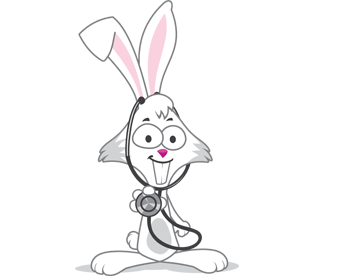


















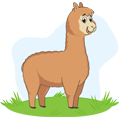


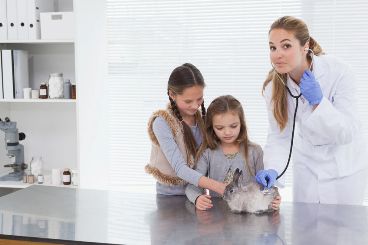
 Rabbits do not enjoy being picked up and cuddled. In fact, it can be really scary for them. As such, rabbits should only be picked up if it is in their best interest.
Rabbits do not enjoy being picked up and cuddled. In fact, it can be really scary for them. As such, rabbits should only be picked up if it is in their best interest.